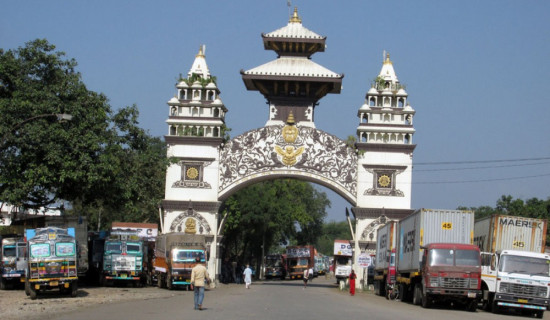- Sunday, 15 February 2026
Social Media Vs Reality
Dixya Poudel
Like most people, you probably spend your leisure scrolling through social media on your smartphone. You see friends online whom you haven’t seen in a long time. You hear from school friends, colleagues, or your relatives across continents. You see them happy and blessed with a well-presented life in social media. You exchange greetings, like their photos, share, and comment on their posts and vice-versa. It seems innocuous, doesn’t it? And yet, you feel more disheartened after logging in hours in the social media.
The fact is social media doesn’t always present a complete picture. It is so because it has become a platform to present mostly the good, fun, successful, and wholesome side of a person. Mark Zuckerberg undoubtedly had innovative vision when he created Facebook in his Harvard dorm. But, one can surely say that as Facebook grew exponentially, so did the way people perceived themselves and others virtually.
There is a feel-good factor in Facebook when it comes to friend requests, likes, comments, and shares that lead to a competition for further online validation. It encourages people to share only their happy and good side. It has spilled over to almost every other social media such as Instagram (whose parent company Meta also owns Facebook), TikTok, and so on. It seems the purpose of the posts on these sites is validation and then more validation. It isn’t thus surprising that there are a plethora of issues with social media apps where there is always someone who is better looking, better dressed, more educated, accomplished, and fitter.
And when people share only the best side of themselves virtually, the hidden side remains bottled, often escalating into other aspects in real life. Consequently, mental health problems such as anxiety, depression, eating disorders, and self-image issues are at the forefront of social media perusal. As such, from its onset to present age, social media has crept up on the human world rather slyly and quite gradually has taken up ubiquitous form. However, social media tends to be vastly different from real life. Real life isn’t always filled with happiness and success, instead there are trials and tribulations that nearly everyone is likely to face but are rarely documented online.
Inadvertently, social media has morphed into an escape with unforeseen results. Since the rollout of Facebook in 2008, there have been different social media apps and all of them are in steep competition to hold the most attention of their users. And for this, such sites bet on the inherent characteristic of humans to compare and compete. Thus, people tend to present their good side for the highest validation fueled by comparison and competition in the algorithm driven networking sites.
When compared to social media life, real life is diverse. It is complicated and intricate with varying shades of colours. It is important that users especially the youth learn to tread carefully in their online world. The photos, posts and videos on social media are highly filtered and edited while the captions are deeply curated. Thus, viewers ought to gauge them for authenticity as perfection in social media is probably a result of hours of editing, photoshopping and curating. Overall, social media perusal today requires a realisation that it is often vastly different from real life.

















